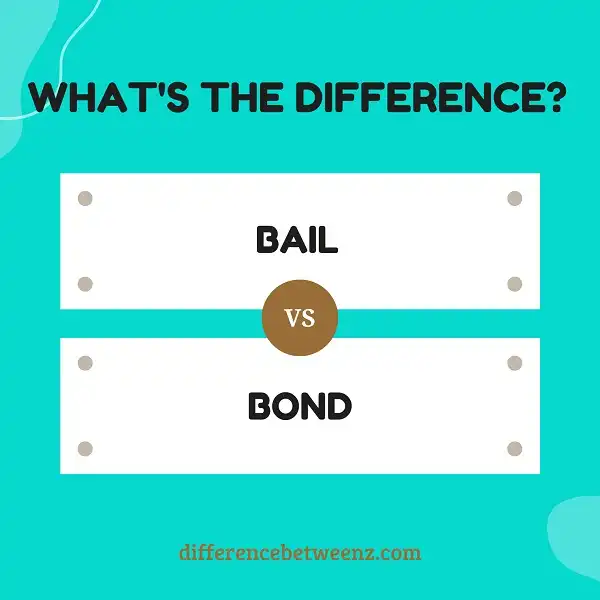When someone is arrested and charged with a crime, they may be offered the opportunity to post bail. Bail is a set amount of money that is paid to the court in order for the accused person to be released from custody. If the accused does not show up for their court date, they forfeit the bail amount. A bond is also a set amount of money, but it is paid to a bondsman who agrees to ensure that the accused appears in court. If the accused does not appear in court, the bondsman will be responsible for finding them and bringing them back to jail.
What is Bail?
Bail is money or some other form of security given to the court to ensure that an accused person will return for their trial. Bail is not a fine or punishment, and it is not paid to the victim. Bail is refunded at the end of the case if the person attends all their required court appearances. Bail may be granted by a judge or justice of the peace at a bail hearing, or in some cases, bail may be granted without a hearing by consent of the Crown prosecutor and defense lawyer.
Bail can be denied if the presiding judge or justice of the peace believes that there are no conditions that would ensure the attendance of the accused person for their required court appearances, or if they are concerned that releasing the accused would endanger the public safety. Bail may also be denied if an accused person has been previously convicted of not attending court when required.
What is Bond?
Bond is often thought of as a financial term, but it also has an important legal meaning. In the context of court and law, a Bond refers to the amount of money that someone must pay in order to be released from jail while awaiting trial. The purpose of a Bond is to ensure that the defendant will return for their court date. If the Bond is not paid, the defendant will remain in jail until their trial. A bond can also be used as collateral for bail, which is a form of Bond that is paid to the court in order to secure the release of a defendant before their trial. In some cases, the Bond may be forfeited if the defendant fails to appear for their court date.
Difference between Bail and Bond
Bail and bond are two terms that are often used interchangeably, but they actually have different meanings. Bail is the amount of money that a defendant must pay in order to be released from jail pending trial. A bond, on the other hand, is a form of insurance that must be posted in order to secure the release of a defendant. If the defendant fails to appear for their court date, the court will keep the bond and issue a warrant for the defendant’s arrest. In most cases, bail is set by a judge at a bail hearing.
The amount of bail is based on a number of factors, including the severity of the crime, the defendant’s criminal history, and the risk of flight. If the defendant cannot afford to pay bail, they may be able to use a bail bond company. Bail bond companies typically charge a fee (usually 10% of the bail amount), and they may require collateral in order to secure the bond.
Conclusion
The primary difference between bail and bond is that bail is a financial transaction, while the bond is a legal contract. Bail refers to the money or assets deposited with the court to secure an accused person’s release from custody. If the accused fails to appear in court when summoned, the bail can be forfeited, meaning the money or assets are handed over to the court. A bond, on the other hand, is a written agreement between two parties in which one party agrees to pay another party a certain sum of money if that party does not comply with the terms of the agreement.


